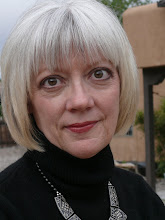When I wrote my article on the role of librarians in patient safety for QSHC the editors made me take this comment out (see below) because it was anecdotal - even though I had a reference to an earlier interview from Lucian.
This is the example I use all the time about the importance - as tough as it is - for librarians to concern themselves with and figure out a way to track and measure the effect of the work they do. This story helps to illustrate why their management should be interested - in the IMPACT of the information and knowledge exchanges they facilitate rather than their focus "how many." On a sheet of paper about "how many searches did you do this month?" it would only be one tick mark. But look at the long term consequence!
Bravo to Bob Wachter and Lucian for sharing this story!
***************
From an interview with Lucian Leape. Complete interview here:http://webmm.ahrq.gov/perspective.aspx?perspectiveID=28.
RW = RobertWachtler, the interviewer, LL = Dr. Leape.
RW: As you were in the middle of that study, what was your sense of its potential?
LL: We always were convinced it was an important study, if nothing else,because of its magnitude. Looking at 30,000 patients gives you someclout. None of us had really thought much about the preventabilityissue, and nobody knew anything about systems, of course. We weren'tcompletely surprised by our results, because earlier work had shownsimilar findings. But we were, shall we say, dismayed to find that 4% ofpatients had adverse events. The surprise for me was that two thirds ofthem were caused by errors. I'll never forget-I went to the library oneday and did a literature search on what was known about preventingerrors, and I didn't find anything. And I went to the librarian andsaid, "I'm interested in how you prevent medical errors, and I've foundpapers about complications, but nothing much about errors." And I asked her to look over my search strategy because I was not finding anything.She looked at it and she said, "Well, your strategy looks all right.Have you looked in the humanities literature?" And I sort of looked ather and said, "The what?" I know what humanities are, mind you. But itreally never occurred to me. So she tried the same search strategy inthe humanities literature, and boom, out came 200 papers. I started toread them and discovered James Reason and Jens Rasmussen and all thosepeople. A year later, I came up for air and realized that we in healthcare could use this. If I didn't know how errors happen, most otherpeople wouldn't know it either. So I decided to write a paper.
RW: So, a medical school librarian set off the modern patient safetymovement?
LL: Ergo, there we go.
Unleash the power of patients to make care safer around the world: an essay
by Helen Haskell.
-
Haskell H. BMJ. 2019;366:l5565.
6 years ago

No comments:
Post a Comment